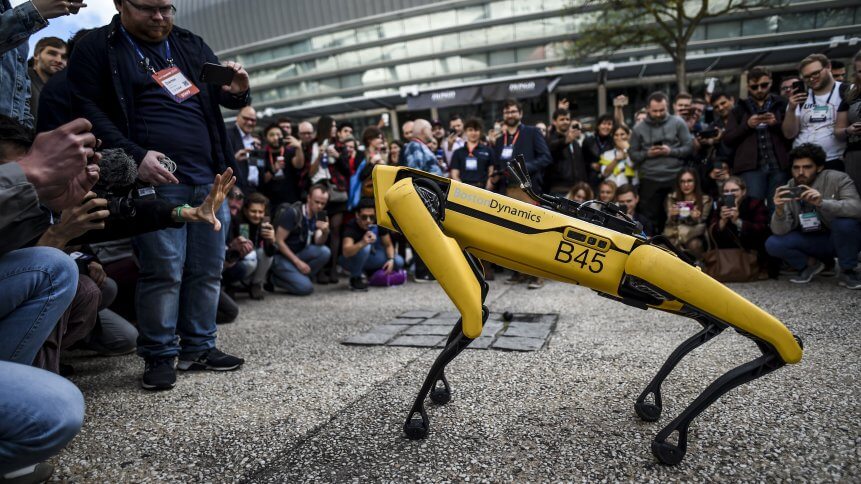Hyundai acquires Boston Dynamics in future mobility bid

South Korean car giant Hyundai has acquired Boston Dynamics, the creator of humanoid and dog-like robots, for close to US$1 billion.
The US-based MIT spinout’s sophisticated robots have captured attention for years now but, so far, the business has remained unprofitable, despite an increasing push to commercialize its products, including in the roll-out of its multi-purpose quadruped.
With a price tag of US$75,000, ‘Spot’ has been put to task on everything from offshore oil rig inspections in Norway, enforcing social distancing in Singapore, to bomb disposal.
Boston Dynamics has also introduced the humanoid robot Atlas and the bird-like mobile robot Handle designed for logistics services.
Hyundai has chosen robotics as one of its new “growth engines”, according to The Korea Economic Daily, alongside electric vehicles and fuel cell cars, where it has made related acquisitions.
The firm, which has shown increased interest in autonomous vehicle tech and robotics in recent years, plans to invest US$1.4 billion into robotics by 2025. In a town hall meeting, Hyundai chairman Chung Euisun said robotics would comprise 20% of future business.
Automobiles would amount to half of the business, he added, while urban air mobility would comprise 30% — this year, Hyundai joined Uber to be part of a global “aerial ride-share network” building next-gen flying vehicles.
Hyundai and robotics
As a car manufacturer, Hyundai is no stranger to robotics, but traditionally its own involvement has been in the creation of static, industrial machines, with prescribed use cases, ie, building vehicles. However, the company has increasingly indicated it’s ready to push boundaries in robotics, developing an exoskeleton suit to augments the work of factory workers, for example, as well as showcasing a “walking car” concept.
Earlier in the year, the firm launched Strategy 2025, an ambitious pursuit to become a top-three leader in the future mobility industry. The strategy will seek to optimize manufacturing— such as building to match demand — and organizational efficiency.
To achieve that, the firm earmarked a staggering US$51.8 billion in funds for R&D and new technologies over the next five years, about one-third of which will be dedicated to electric and autonomous vehicles.
By the end of that sprint, the firm wants to be selling 670,000 EVs annually and to become one of the world’s biggest manufacturers of battery and fuel cells for EVs.
The acquisition of Boston Dynamics represents a significant, early milestone in that journey, and is an indication of the direction of traditional carmakers’ movement to become future mobility technology providers that converge robotics, smart manufacturing, and autonomous transportation.
In a statement, the firm said the investment “furthers Hyundai’s portfolio of technology that addresses opportunities for both service robots and logistics robots.
“Service robots like Spot have the potential to perform dull, dirty, and dangerous tasks in settings where automation has been challenging to implement. With its computer vision solution, Pick, for depalletizing and its mobile warehouse robot in development, Boston Dynamics will expand Hyundai’s footprint in logistics robots.”









